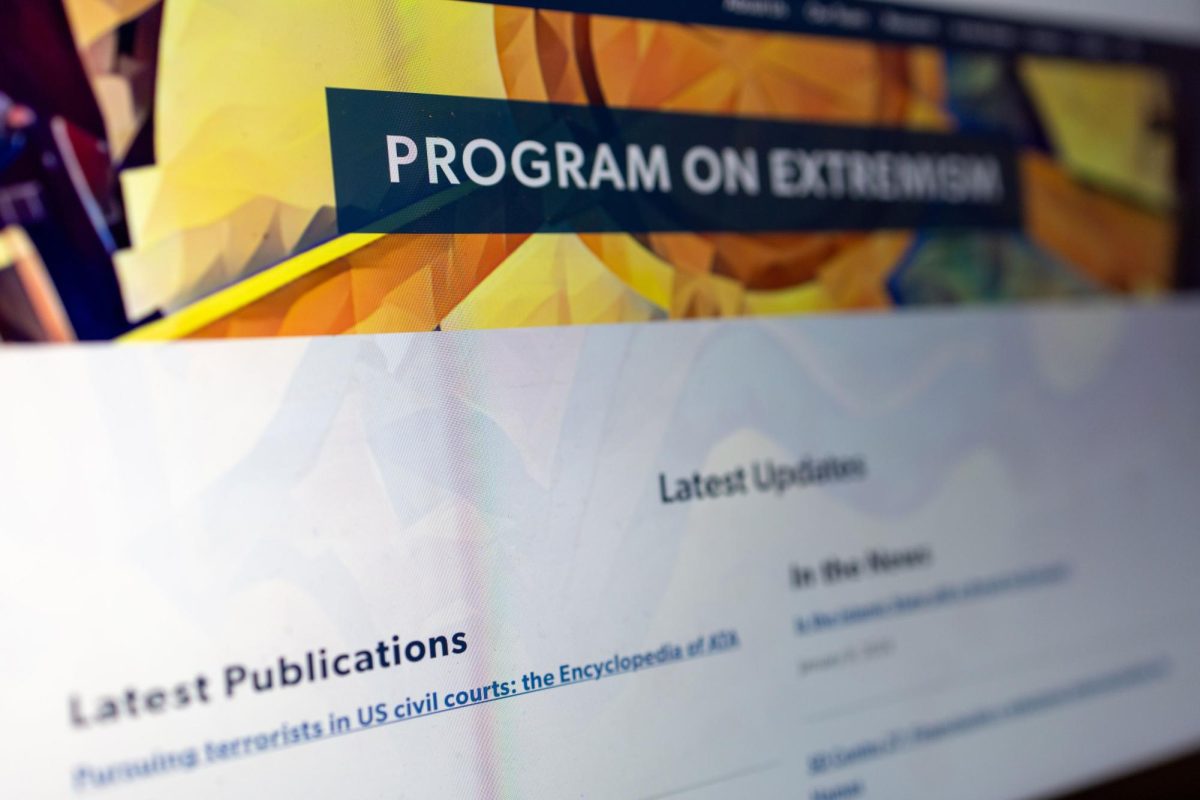A target of an alleged smear campaign is suing the University and the director of GW’s Program on Extremism for falsely identifying him as an Islamic extremist in exchange for undisclosed compensation from the United Arab Emirates, according to a lawsuit filed Wednesday.
In the 67-page lawsuit filed in D.C. District Court, Farid Hafez — an Austrian political scientist and visiting professor of international studies at Williams College — alleged that Lorenzo Vidino, the program’s director, fed false statements to the press that accused him of having ties to the Muslim Brotherhood, which the UAE considers a terrorist organization. The lawsuit accused GW of complicity in an alleged UAE-led smear campaign overseen by Swiss private intelligence firm Alp Services, letting Vidino use the program as a “platform” for his unlawful work, and accepting undisclosed funding from the UAE.
“On information and belief, the defendants took advantage of plaintiff, Dr. Farid Hafez, by hiding behind the edifice of academic freedom and integrity when in fact they were engaged in skullduggery for a foreign power,” the lawsuit states.
Hafez is suing Vidino, GW, the program and Alp’s owners and senior employees for at least $10 million in out-of-pocket and punitive damages, lost business opportunities and relocation costs. He requested a jury trial for all allegations against Vidino, GW and the program.
Vidino and a University spokesperson did not return a request for comment.
Hafez’s defense attorney, David Schwartz, said Vidino, GW and Alp Services conspired to “destroy adversaries” of the UAE, including Hafez, by damaging their reputations. The lawsuit alleges that Hafez was arrested, detained and had his house raided by German, French and Austrian authorities. Schwartz said it was the result of fictional materials like reports, press releases and presentations supplied by Vidino that claimed Hafez was involved in the Brotherhood.
“That’s just plain wrong,” Schwartz said. “It’s actionable, I think we have a very viable case and my client is going to be seeking justice in this case against people that conspired against him, his good reputation, basically placing him as a member of the Muslim Brotherhood.”
The Austrian Interior Ministry used a report written by Vidino as the basis to carry out raids on citizens and organizations that were suspected of having ties to the Muslim Brotherhood in 2020, according to a New Yorker article which detailed the alleged smear campaign also carried out by Alp Services against American businessman Hazim Nada.
Vidino was named in a lawsuit filed in D.C. District Court in January that alleged he had worked in conjunction with Alp Services to carry out a smear campaign against Nada. The lawsuit states that Vidino signed a contract with Alp Services in 2018 for 3,000 euros to spread disinformation about the funding system of a Swiss-based oil-trading company, which went bankrupt in 2019.
The most recent lawsuit alleges that Vidino violated the Foreign Agents Registration Act by working for the UAE without disclosing his ties to the U.S. government and that GW failed to hold Vidino accountable for his alleged crimes.
The FARA Unit of the Counterintelligence and Export Control Section in the National Security Division requires any individual or entity in the United States that becomes an “agent of a foreign principal” to disclose political and financial activities to the government.
The lawsuit alleges that Vidino also violated the U.S. Racketeer Influenced and Corrupt Organizations Act and committed common law fraud by engaging in mail fraud, wire fraud, tax evasions and violations of the Espionage Act, which prohibits obtaining information for use against the U.S. or to the benefit of a foreign entity.
The lawsuit also alleges that Vidino violated the Racketeering Influence and Corrupt Organization Act, which makes it illegal to engage in racketeering or unlawful collection of debts when engaged in interstate or international commerce.
“Ultimately, plaintiff learned that defendants Vidino and the GWU Program on Extremism (with knowledge of the defendants to varying degrees), had masterminded a scheme to defraud the public and take advantage of individuals like the plaintiff casting them all as radicals and Islamic extremists in order to secure undisclosed funding from the UAE,” the lawsuit states.





